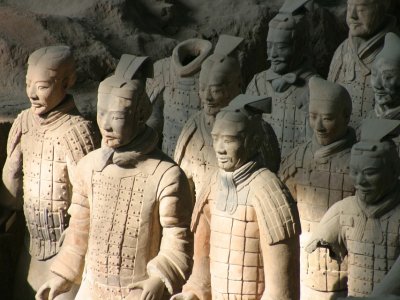
CONTROLLING CHINA
There is a saying in the far east: killing the chicken to scare the monkeys. China’s authoritarian turn under President for life Xi Jinping has led to a modernising of the Cultural Revolution’s terrible show trials, where confessions are made on the state TV channel CCTV. The public shaming of dissidents, academics, lawyers, artists and journalists, among others, takes place after they have been broken in prison. One victim has been quoted as saying: Not only did they want to make you say that black was white, you also had to explain why black was white.
The sheer reach and ambiguity of the law means that a citizen can be turned into a criminal at a stroke if the authorities wish. This is a tactic shared with Russia and strikes fear and uncertainty into the minds of people who do not quietly obey. One jurist has described it as the rule by law rather than the rule of law; law is put in the service of power rather than calling it to account.
The Chinese Communist Party’s control of life may soon be extended much further than it already is. A new social credit system is being forged, where citizens are judged by a crude calculus. This is at an early stage, but the opportunities are limitless. In Shanghai, authorities can currently access over five thousand separate pieces of information per citizen, drawn from a range of public bodies. An App has been created which, for now, people can download voluntarily, that determines whether you are a good or bad citizen. The intention is to roll it out for the whole of China in the near future. Citizens who come out well can be expected to gain benefits – like reductions on the cost of tickets. Those who do badly will find, among other disbenefits, that their freedom of movement is curtailed.
There are fans of this system, especially when it is sold as a way of shaming cheats, but there are disturbing risks. The Chinese Communist Party (CCP) will be the arbiter of good and bad and the system will suit its needs for a pliant, malleable community that does not ask questions of the system or those who control it. In Rongcheng, where a similar system to Shanghai’s has been adopted, anyone who engages online in ‘illegal religious activities’ loses a huge number of points.
It will encourage snooping and the shopping of neighbours. Trust is already at a very low ebb in China, as the CCP has suppressed the kinds of voluntary local groups through which trust in others is built. It suits its purposes to ensure the primary relationship is between the individual and the State and that the State is in charge of this bond. There are also serious dangers that any system will be rife with inefficiency, failings and corruption.
Many Chinese people are presently unaware of this planned system. As data quantification develops and other bodies hold more information on us, the social credit system could transcend the dystopian universe of Orwell’s 1984.
Every society needs codes of criminal and civil law, to determine offences and disputes between people, and it is good for citizens to be commended or awarded for particular sacrifices made for others. But a micromanaged system of social creditworthiness overseen by an overmighty State with an interest in taming its population and ensuring its obedience will corrode China’s soul.
Only God knows the human heart and, at the last day, will make the judgment of our actions, mercifully redeemed by the saving work of Jesus. The closer a human authority gets to making these judgments now, the more it assumes idolatrous power, one which delivers deep injustice because the system is set up by flawed human beings with their own perverse agenda.
The data revolution carries great temptations and these are appearing just as China’s influence in the world grows. It would be no surprise to see the social credit system rolled out in other authoritarian States in time, especially those which lean towards China or are dependent on it. Some time after the Tiananmen massacre, a consensus was reached in the democratic world that trade with China was far too important to allow dispensable values likes freedom of speech and assembly to get in the way. For now, this has served pragmatic, realist foreign policies well. But these freedoms are integral to human flourishing and to the beating heart of God. We have ignored them at great risk.
Many assume this is to be China’s century, but they scarcely stop to think through what that means while the Chinese Communist Party is in the ascendency and tightens its grip. The democratic world looks unkempt, smelly and shouty right now, and is less attractive than it thinks to others. The stakes could not be higher.
POPULAR ARTICLES

Obama's Covert Wars
The use of drones is going to change warfare out of all recognition in the next decades.

Through A Glass Starkly
Images of traumatic incidents caught on mobile phone can be put to remarkable effect.

What Are British Values?
Is there a British identity and if so, what has shaped the values and institutions that form it?


